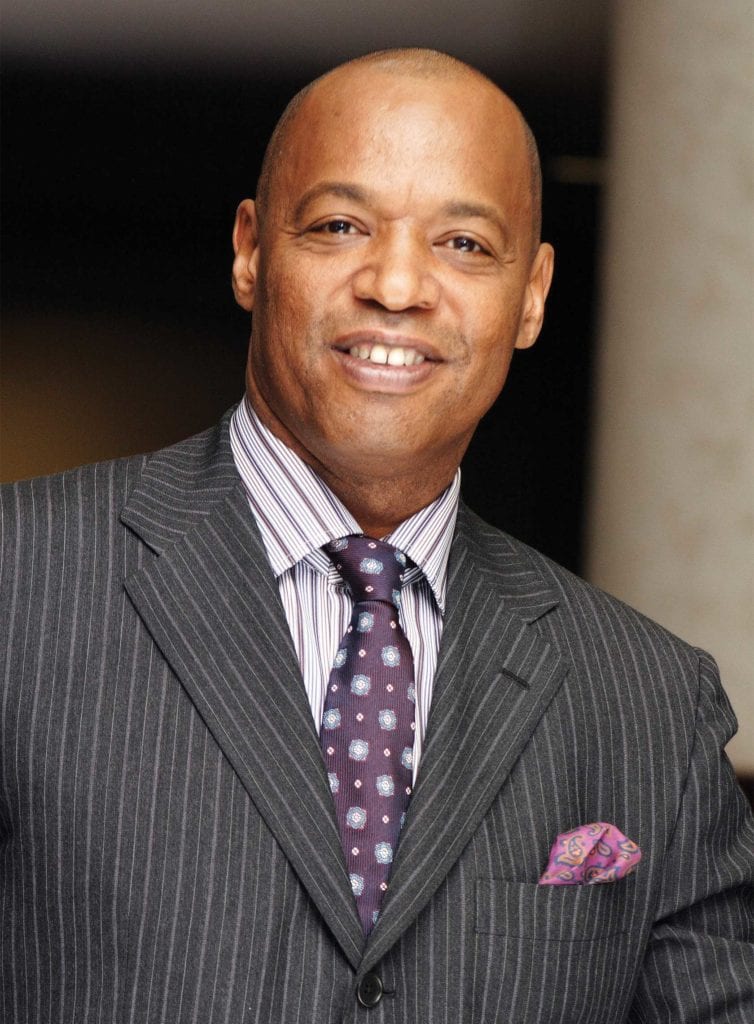Bank finds opportunity in challenging times
BankBlack movement and online purchases boost bank’s deposits

Last year, Boston-based OneUnited Bank launched a BankBlack credit card, aligned with its increasing focus on online transactions.
The Black-owned bank’s move to online banking proved prescient, as the COVID-19 pandemic moved much of Americans’ commerce online during the lockdowns that dominated the spring.
“The notion of people buying their goods primarily through the internet — our online banking products were designed for that,” said OneUnited CEO Kevin Cohee, speaking from Los Angeles, where the bank has a branch. “The socioeconomic trends were already in place.”
The BankBlack credit card, announced in December of last year, also positioned the bank to thrive amid the social unrest that followed the May 25 killing of George Floyd and the rise in support for Black businesses that grew out of it. In the three-and-a-half months following Floyd’s death at the hands of Minneapolis police, the bank has received 50,000 new customers, bringing in $50 million in new deposits.
Cohee told the Banner that OneUnited’s BankBlack credit card and other products were in place before the current surge in interest in supporting Black businesses.
“The bank throughout its entire history has positioned itself to play an advocacy role in social issues affecting Black people,” he said.
Last week, the bank announced an additional $10 million deposit from the Cambridge-based biotech firm Biogen.
“Economic empowerment is critical if we want to actually address systemic racism and inequity,” said Chirfi Guindo, executive vice president of Global Product Strategy & Commercialization at Biogen, in a media statement. “For Biogen, this deposit is one of many ways we are delivering on our enhanced Diversity, Equity and Inclusion strategy. But for OneUnited’s customers, this deposit could mean allowing them to pursue their dreams or strengthening underrepresented minority businesses.”
Cohee said Biogen’s move is part of a wider trend of white-run corporations understanding the importance of investing in Black communities.
“It’s corporations such as Microsoft, PayPal, Netflix,” he said. “They’re stepping up to help build the infrastructure to help Black institutions.”
OneUnited has its roots in Unity Bank, a Black-owned institution chartered in Boston in 1968. In 1982, the Black-owned Boston Bank of Commerce acquired Unity Bank’s assets. In 1995, Kevin Cohee and his wife Teri Williams made a million-dollar investment in Boston Bank of Commerce ($1.7 million in 2020 dollars), acquiring a controlling interest in the bank. In 1999, they acquired Miami-based People’s Bank of Commerce. In 2001, they merged with Founders National Bank in Los Angeles, maintaining a controlling interest in the merged entity.
The mergers left OneUnited with $500 million in assets.
Today, the bank has more than $700 million in assets and is the largest Black-owned bank in the country.
While the Los Angeles-based Broadway Federal Bank is planning a merger with the Washington, D.C.-based City First Bank, potentially creating an entity with $850 million in assets, that merged bank would be considered Black-controlled, but not Black-owned.
Regardless, Cohee says OneUnited is growing rapidly amid the resurgence of interest in investing in Black businesses. Building Black wealth is the bank’s core function, according to Cohee.
“We’re glad we’re in a position to help Black America as we work our way through this crisis,” he said.







